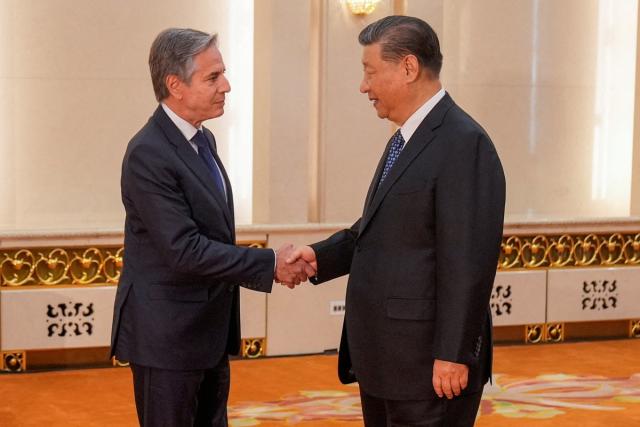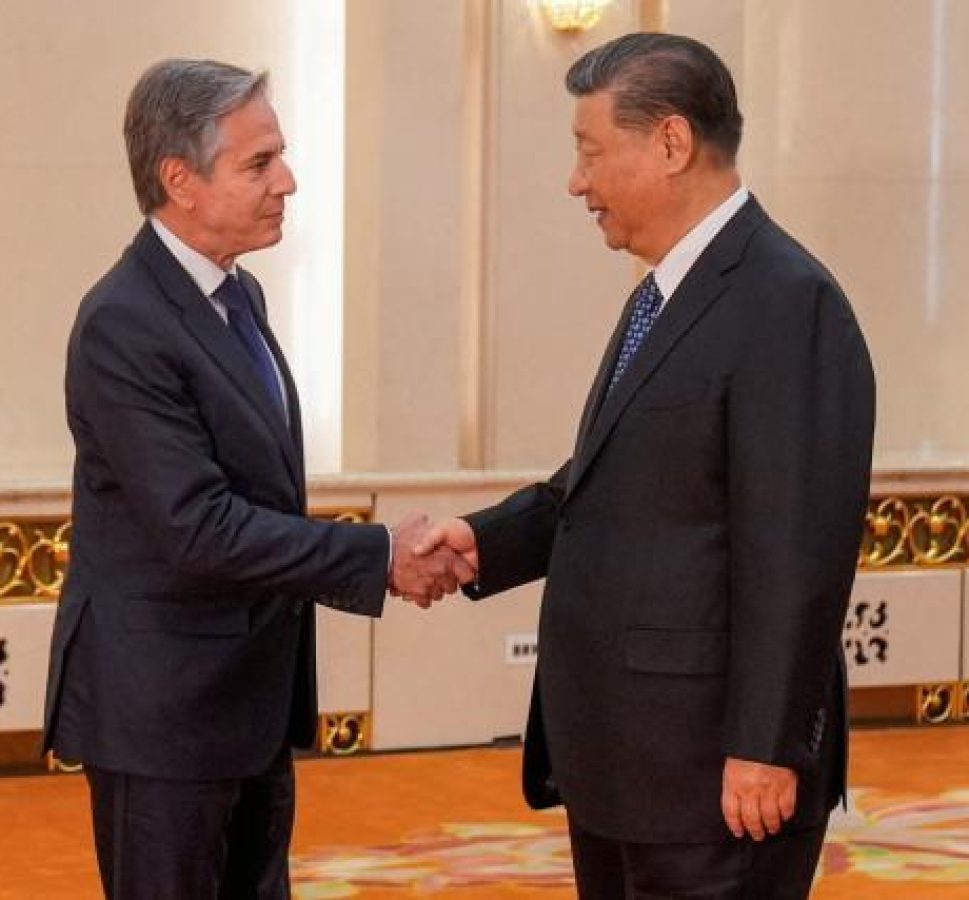
China says it prefers to bolster its ties with the United States, but considerable challenges remain.
United States Secretary of State Antony Blinken has capped a visit to Beijing by meeting Chinese President Xi Jinping as the two countries try to stabilise relations amid disputes over national security, the economy, and geopolitical differences on the Middle East, Ukraine and Southeast Asia.
Xi told the top US diplomat on Friday that the two superpowers “should be partners rather than rivals” and should help each other succeed rather than hurt each other, according to the state news agency Xinhua.
“I proposed mutual respect, peaceful coexistence and win-win cooperation to be the three overarching principles. They are both lessons learned from the past and a guide for the future,” he said.
Xi said China would be happy to see a prosperous US and hopes Washington will share this outlook for Beijing so bilateral ties can “truly stabilise, improve and move forward”.
But as both Xi and Blinken said, there are still major issues that threaten the recent improvement in relations.
Blinken raised the issue of Chinese “support to the Russian defence industrial base” during five and a half hours of talks, according to US Department of State spokesperson Matthew Miller, who added that the two sides also discussed fractious topics such as Taiwan and the South China Sea.
China has not provided Russia with arms for its war in Ukraine, but the US and other Western nations say Chinese industrial exports like machinery and semiconductors have helped Russia increase its production of weapons.
Beijing has called this normal trade between China and Russia that should not be disrupted or restricted, also pointing out that the war is being prolonged by major Western arms transfers and funding for Ukraine.
Blinken earlier on Friday met with Chinese Foreign Minister Wang Yi, who cautioned that their countries could either “keep to the right direction of moving forward with stability or return to a downward spiral” or even “slide into confrontation”.
Wang said China observes a number of “red lines” that the US must not overstep as their relations are tested by “negative factors”.
“China’s legitimate development rights have been unreasonably suppressed, and our core interests are facing challenges,” he told Blinken.
The US warned China about its assertive moves around the Philippines and promised to defend its ally.
“I made clear that while the US will continue to de-escalate tensions, our defence commitments to the Philippines remain ironclad,” Blinken told reporters, adding that he raised Beijing’s “dangerous actions in the South China Sea” during meetings with top leaders.
In addition to clashing on Taiwan, which China claims as its own territory and the US has been arming, the two nations have seen tensions rising over artificial intelligence, a law that seeks to ban TikTok in the US if its Chinese parent company refuses to sell it and China’s supply of chemicals used to make fentanyl.
Underscoring the fraught nature of their relations, US President Joe Biden signed into law a bipartisan bill that includes $8bn to counter China’s military might along with $61bn for Ukraine and billions in military aid for Taiwan just hours before Blinken arrived in China on Wednesday.
China-US relations have been turbulent in recent years with the situation exacerbated among other things by a trade war, then-House of Representatives Speaker Nancy Pelosi’s visit to Taiwan in 2022 and a row over the US downing of a suspected Chinese surveillance balloon last year.






